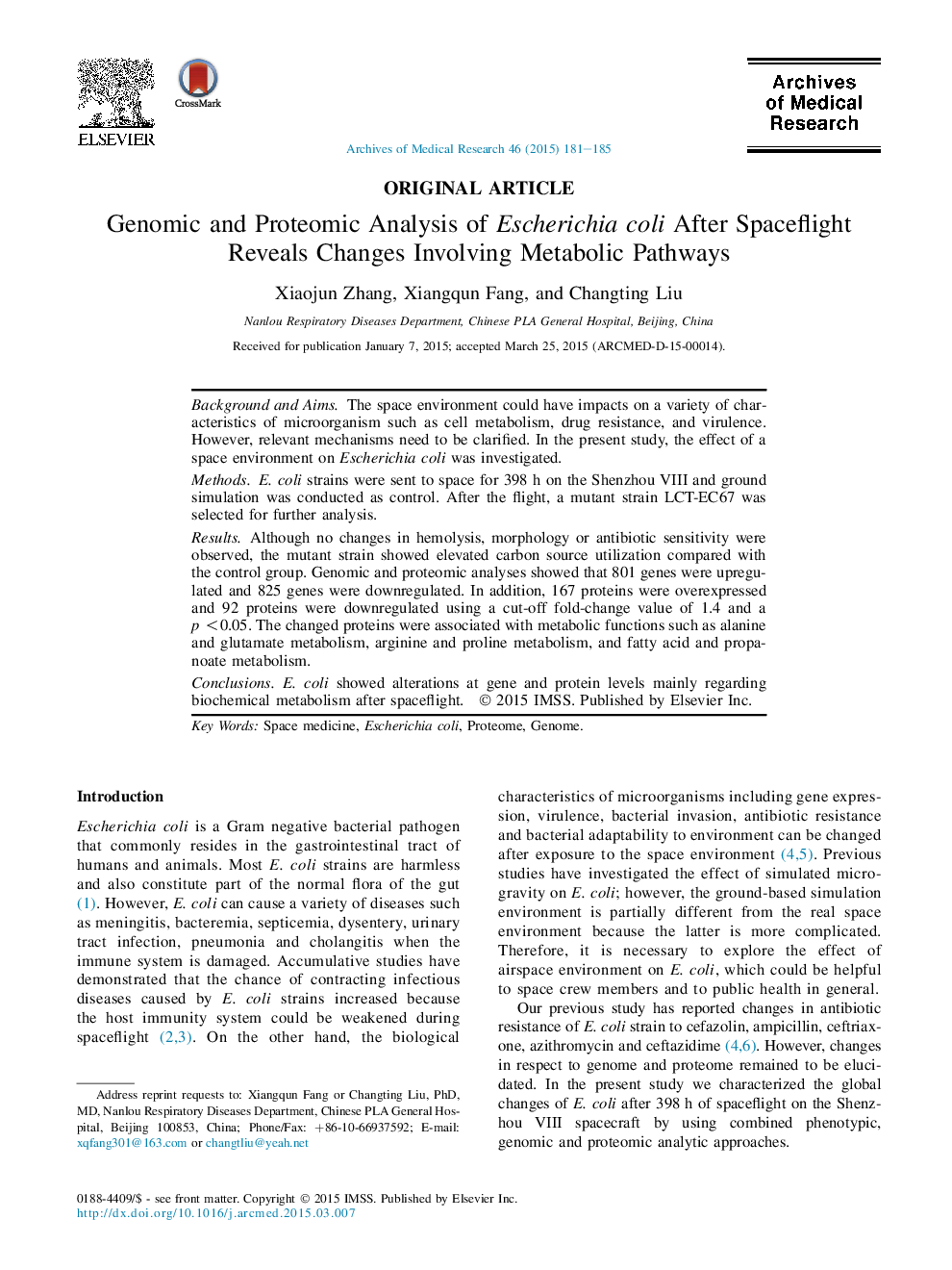| Article ID | Journal | Published Year | Pages | File Type |
|---|---|---|---|---|
| 3446449 | Archives of Medical Research | 2015 | 5 Pages |
Background and AimsThe space environment could have impacts on a variety of characteristics of microorganism such as cell metabolism, drug resistance, and virulence. However, relevant mechanisms need to be clarified. In the present study, the effect of a space environment on Escherichia coli was investigated.MethodsE. coli strains were sent to space for 398 h on the Shenzhou VIII and ground simulation was conducted as control. After the flight, a mutant strain LCT-EC67 was selected for further analysis.ResultsAlthough no changes in hemolysis, morphology or antibiotic sensitivity were observed, the mutant strain showed elevated carbon source utilization compared with the control group. Genomic and proteomic analyses showed that 801 genes were upregulated and 825 genes were downregulated. In addition, 167 proteins were overexpressed and 92 proteins were downregulated using a cut-off fold-change value of 1.4 and a p <0.05. The changed proteins were associated with metabolic functions such as alanine and glutamate metabolism, arginine and proline metabolism, and fatty acid and propanoate metabolism.ConclusionsE. coli showed alterations at gene and protein levels mainly regarding biochemical metabolism after spaceflight.
